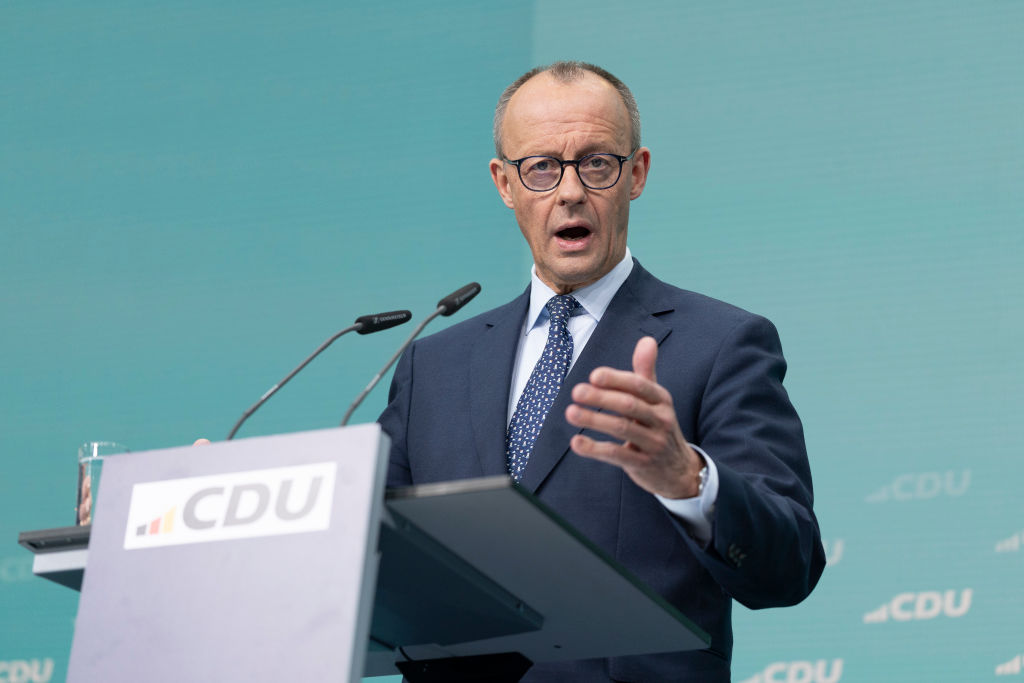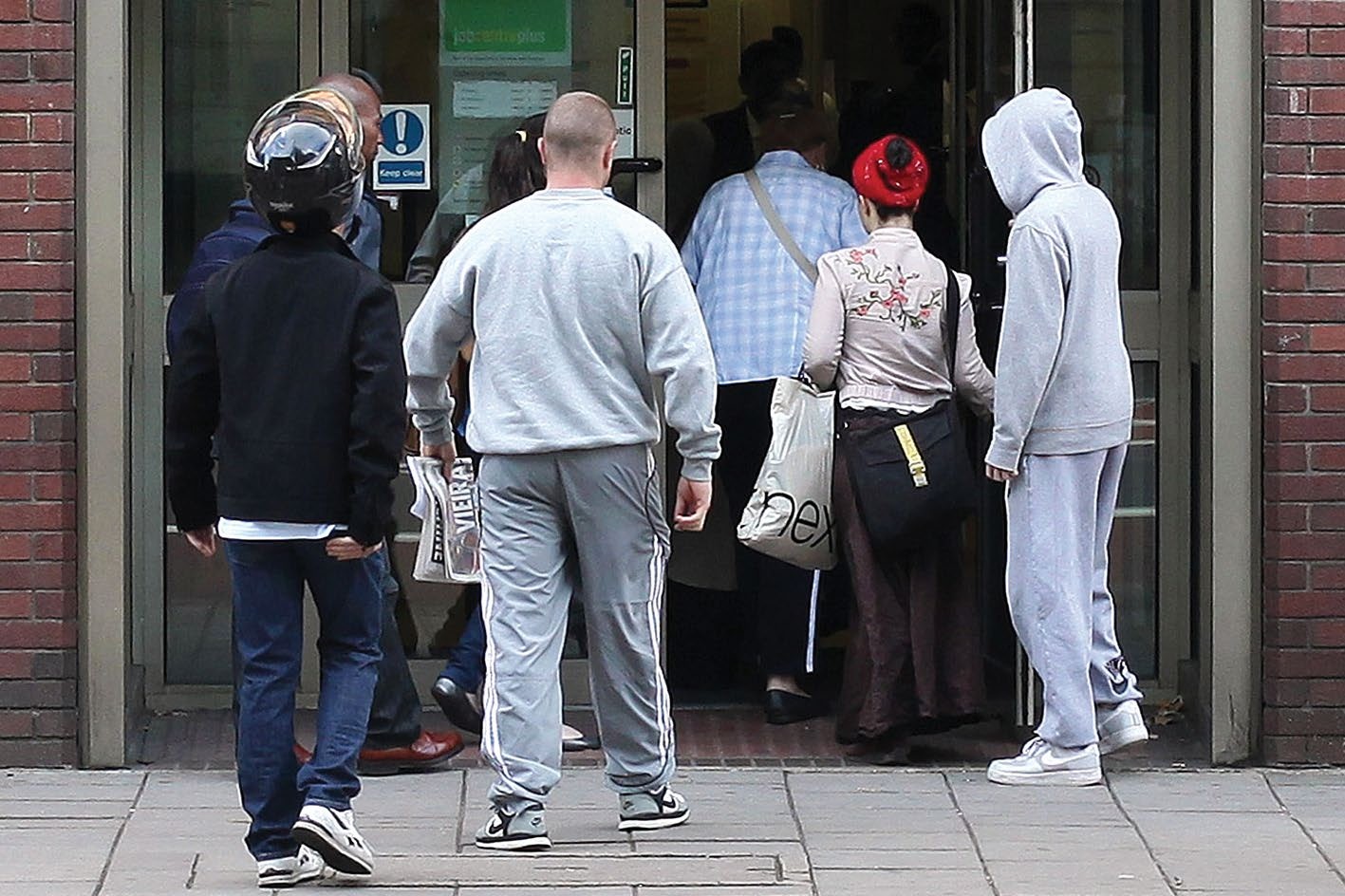Key takeaways from the 2025 German election results
Friedrich Merz has heralded a new era for Germany, after the German elections revealed a majority of young voters are leaning towards the far-right. Will things look any different when the aftershocks settle?


Get the latest financial news, insights and expert analysis from our award-winning MoneyWeek team, to help you understand what really matters when it comes to your finances.
You are now subscribed
Your newsletter sign-up was successful
Want to add more newsletters?
Three things emerged clearly from Germany’s general election, says The Economist.
First, the opposition conservative Christian Democrats (CDU), along with their Bavarian sister party, the Christian Social Union (CSU), won a definite if “underwhelming” victory with 29% of the vote.
Friedrich Merz will take over as chancellor from Olaf Scholz, whose SPD party was relegated to third place after its worst performance since 1887.
Try 6 free issues of MoneyWeek today
Get unparalleled financial insight, analysis and expert opinion you can profit from.

Sign up to Money Morning
Don't miss the latest investment and personal finances news, market analysis, plus money-saving tips with our free twice-daily newsletter
Don't miss the latest investment and personal finances news, market analysis, plus money-saving tips with our free twice-daily newsletter
Second, the hard-right Alternative for Germany (AfD) secured its best-ever result, with 20% of the vote, roughly doubling its seats in the Bundestag.
Third, the “extraordinary turnout” of 83%; the highest figure since German reunification in 1990.
The popularity of the AfD, particularly among younger voters, is largely attributable to a desire for a “stricter approach” to immigration, fuelled by a series of lethal attacks involving foreigners, says The Times. In 2015, Angela Merkel “threw open the doors” to more than a million Syrian refugees.
What's next for Germany?
The combined vote for the CDU and AfD reveal that Germany’s “clear preference” is for a rightwing government, says The Telegraph.
Yet since Merz has ruled out a partnership with the AfD (regarded by many as a neo-fascist entity), the most likely outcome is a two-party coalition between the CDU/CSU and the SPD, a “discredited party of the left” – a return to the “grand coalition” that was in place for three of Angela Merkel’s four terms.
Geopolitical and economic realities should help expedite coalition talks. Added to immigration concerns is anxiety about security in the face of Russia’s expansionism and America’s “strategic retreat”, says The Times.
Merz wasted no time in heralding a new era in Europe, calling for the immediate strengthening of Europe’s defences to establish “real independence” from the US. Recently, he suggested that he would look to France and Britain to replace US nuclear guarantees.
For all the punchy talk, the road ahead is littered with obstacles. “Military autonomy will cost billions” and Germany’s economy is flatlining. The country is “a prime target for US tariffs and China’s dumping”.
Merz’s spending ability is severely constrained by a “debt brake” that limits federal borrowing to no more than 0.35% of GDP (there has been talk of scrapping this).
While the “risks of a trans-Atlantic fissure have clearly increased”, it will be hard to sever ties altogether, says Neil Shearing on Capital Economics. Despite the “head-spinning” turn of events, in practice there are “powerful forces” acting against Europe splitting from the US to become a “third superpower”.
“Political, cultural, social, economic and security ties” run “broad and deep”. Europe is an important part of the “economic diversity” of the US bloc and the US has come to rely on Europe as part of its “push to contain China”.
A deal to end the war in Ukraine might emerge more quickly. The pressure to increase defence spending will be “intense”. But the most likely outcome is that in four years’ time the US and Europe will “still be allies”.
This article was first published in MoneyWeek's magazine. Enjoy exclusive early access to news, opinion and analysis from our team of financial experts with a MoneyWeek subscription.
Get the latest financial news, insights and expert analysis from our award-winning MoneyWeek team, to help you understand what really matters when it comes to your finances.

Emily has worked as a journalist for more than thirty years and was formerly Assistant Editor of MoneyWeek, which she helped launch in 2000. Prior to this, she was Deputy Features Editor of The Times and a Commissioning Editor for The Independent on Sunday and The Daily Telegraph. She has written for most of the national newspapers including The Times, the Daily and Sunday Telegraph, The Evening Standard and The Daily Mail, She interviewed celebrities weekly for The Sunday Telegraph and wrote a regular column for The Evening Standard. As Political Editor of MoneyWeek, Emily has covered subjects from Brexit to the Gaza war.
Aside from her writing, Emily trained as Nutritional Therapist following her son's diagnosis with Type 1 diabetes in 2011 and now works as a practitioner for Nature Doc, offering one-to-one consultations and running workshops in Oxfordshire.
-
 Financial education: how to teach children about money
Financial education: how to teach children about moneyFinancial education was added to the national curriculum more than a decade ago, but it doesn’t seem to have done much good. It’s time to take back control
-
 Investing in Taiwan: profit from the rise of Asia’s Silicon Valley
Investing in Taiwan: profit from the rise of Asia’s Silicon ValleyTaiwan has become a technology manufacturing powerhouse. Smart investors should buy in now, says Matthew Partridge
-
 The scourge of youth unemployment in Britain
The scourge of youth unemployment in BritainYouth unemployment in Britain is the worst it’s been for more than a decade. Something dramatic seems to have changed in the labour markets. What is it?
-
 In defence of GDP, the much-maligned measure of growth
In defence of GDP, the much-maligned measure of growthGDP doesn’t measure what we should care about, say critics. Is that true?
-
 Reach for the stars to boost Britain's space industry
Reach for the stars to boost Britain's space industryopinion We can’t afford to neglect Britain's space industry. Unfortunately, the government is taking completely the wrong approach, says Matthew Lynn
-
 "Botched" Brexit: should Britain rejoin the EU?
"Botched" Brexit: should Britain rejoin the EU?Brexit did not go perfectly nor disastrously. It’s not worth continuing the fight over the issue, says Julian Jessop
-
 'AI is the real deal – it will change our world in more ways than we can imagine'
'AI is the real deal – it will change our world in more ways than we can imagine'Interview Rob Arnott of Research Affiliates talks to Andrew Van Sickle about the AI bubble, the impact of tariffs on inflation and the outlook for gold and China
-
 Tony Blair's terrible legacy sees Britain still suffering
Tony Blair's terrible legacy sees Britain still sufferingOpinion Max King highlights ten ways in which Tony Blair's government sowed the seeds of Britain’s subsequent poor performance and many of its current problems
-
 How a dovish Federal Reserve could affect you
How a dovish Federal Reserve could affect youTrump’s pick for the US Federal Reserve is not so much of a yes-man as his rival, but interest rates will still come down quickly, says Cris Sholto Heaton
-
 New Federal Reserve chair Kevin Warsh has his work cut out
New Federal Reserve chair Kevin Warsh has his work cut outOpinion Kevin Warsh must make it clear that he, not Trump, is in charge at the Fed. If he doesn't, the US dollar and Treasury bills sell-off will start all over again